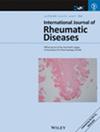Prevalence of Human Leukocyte Antigen (HLA)-B*58:01 and Allopurinol-Induced Adverse Reactions in Filipino Patients in Hawai'i: Implications for Genotyping
Abstract
Introduction
Allopurinol, a first-line treatment for gout and hyperuricemia, is associated with severe cutaneous adverse reactions (SCAR) in individuals carrying the HLA-B*58:01 allele. Genotyping is conditionally recommended in Han Chinese, Korean, and Thai populations with an allele prevalence of 7.4%, and in African Americans at 3.8%. The prevalence in Filipino patients has not been studied. We investigate the prevalence of HLA-B*58:01 among Filipino patients in Hawai'i and evaluate the incidence of allopurinol-induced adverse reactions following genotyping.
Methods
We conducted a retrospective chart review of 312 patients who underwent HLA-B*58:01 genotyping at a primary care clinic in Hawai'i between November 2021 and July 2024. After excluding patients with missing ethnicity data, non-Filipino ethnicity, or prior allopurinol use, 237 Filipino patients were included in the analysis. The prevalence of the HLA-B*58:01 allele and the incidence of allopurinol-induced adverse reactions were calculated.
Results
Among the 237 Filipino patients, 17 (7.2%) were HLA-B*58:01 positive. A total of 97 patients were started on allopurinol after genotyping and 1 (1.0%) developed mild cutaneous reactions, 0 (0%) developed SCAR, and 2 (2.1%) experienced gastrointestinal symptoms (nausea and diarrhea).
Conclusion
The high prevalence of HLA-B*58:01 allele among Filipino patients in Hawai'i suggests that genotyping may be considered before initiating allopurinol treatment. Given no instances of SCAR were observed in patients who were administered allopurinol after undergoing HLA-B*58:01 genotyping, genotyping may play a crucial role in reducing the risk of allopurinol-induced SCAR in this population. Further studies with larger cohorts are suggested to confirm our findings and assess broader clinical utility of genotyping.

 求助内容:
求助内容: 应助结果提醒方式:
应助结果提醒方式:


